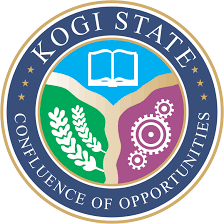Probe Kogi N19.3 billion bailout
Kogi State has become a laughing stock since the Economic and Financial Crimes Commission (EFCC) located a monumental sum of N19.3 billion bailout fund stashed away in an interest-yielding Sterling Bank Plc fixed deposit account. As a financial crime that could land some of its officials in court, the Kogi State government has forcefully and […]

Kogi State has become a laughing stock since the Economic and Financial Crimes Commission (EFCC) located a monumental sum of N19.3 billion bailout fund stashed away in an interest-yielding Sterling Bank Plc fixed deposit account. As a financial crime that could land some of its officials in court, the Kogi State government has forcefully and vigorously denied ownership of the huge sum of money, accusing the anti-graft agency of being in bed with mischievous elements plotting to tarnish the image of Governor Yahaya Bello.
However, in a 13-paragraph affidavit in support of the ex-parte application before the Justice Tijjani Ringim of the Federal High Court in Lagos to freeze the state’s account to stop further dispensation of the funds in the fixed account, the EFCC had claimed that it took the step after receiving credible and direct intelligence. Working on the intelligence, the EFCC said it was able to trace the funds reasonably suspected to be proceeds of unlawful activities in account No. 0073572696 domiciled in Sterling Bank, Plc with the name, Kogi State Salary Bailout Account. Justice Ringim ordered that the account should be frozen, but as a result of denial of ownership by the Kogi State government, the account has been unfrozen and the money moved from Sterling Bank Plc into the Central Bank of Nigeria (CBN).
Last week, the EFCC said, “The transfer has put paid to any further controversy regarding source and ownership of the funds and, most importantly, aborted the fund’s dissipation”, even as Kogi State still maintained that no such funds ever existed. Its Commissioner for Information and Communication, Kingsley Fanwo, said, “Let it be known that the Kogi State government refutes every bit of these false allegations being peddled by the EFCC. There is, therefore, no ‘hidden bailout funds/loan’ belonging to Kogi State that is capable of being returned to the CBN or frozen by an order of court.”
In spite of the denial by the Kogi State government of the secret account, it is no hidden secret that in 2015, former Kogi State Governor Ibrahim Wada sought a N50 billion bailout from the federal government to offset a huge outstanding wage bill, which sparked an outcry by workers in the state. The federal government did not release the bailout fund until after Yahaya Bello became governor in 2016. The first tranche of N20 billion was released that year, while the second tranche of N30 billion was released in 2019. Apart from the N50 billion, the state has received N19 billion as Paris Club refunds, and another N11 billion refund for road construction by the previous administration. All of these are public knowledge.
In spite of these special financial interventions, monthly allocations from the Federation Account, and Internally Generated Revenue (IGR), Kogi State workers are not being paid their salaries in full. This atmosphere gives credence to the suspicion that some unscrupulous Kogi State government officials may have been operating the controversial account.
We believe that it is not enough for the EFCC to have the money moved to the CBN. It is important to get to the root of this matter to ensure that Nigerians know the whole truth about this controversy. Money cannot lack ownership; certainly not the amount in question. The management of Sterling Bank Plc must come clean on when the account was opened, produce the individuals or officials who opened the secret account, and ensure that the interest paid on the money is recovered and returned to the treasury.
It is unfortunate that the Kogi State House of Assembly has maintained a loud silence over this matter. It is the responsibility of the House of Assembly to hold the Executive arm of government accountable to the people of the state. We, therefore, call on the state legislators to investigate this case to a logical conclusion. Also, the Federal Ministry of Finance and CBN must probe this controversy and ensure that any institution that violated extant banking laws in this case is sanctioned, and that the people of Kogi State do not lose funds that legitimately belong to them.
When utilised judiciously, N19bn could help reduce the infrastructure deficit in the state. This, in turn, could help transform the state in areas like the development of small and medium scale businesses and therefore improve internal revenue generation in the state. This scandal cannot be swept under the carpet.
